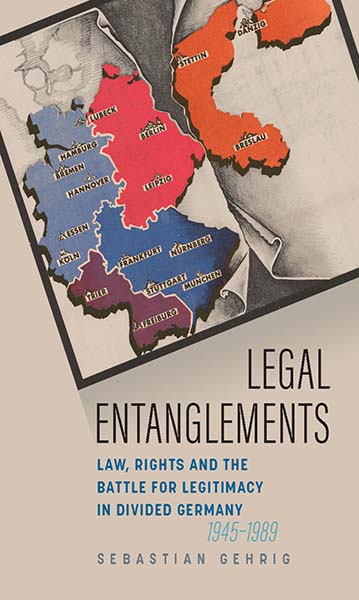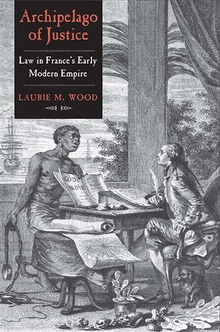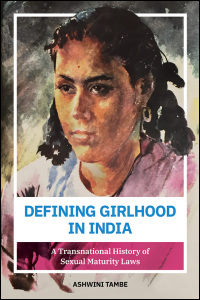[David Sugarman, Professor Emeritus at the Law School, Lancaster University, Senior Associate Research Fellow at the Institute of Advanced Legal Studies, University of London, and Senior Associate, Centre for Socio-Legal Studies, University of Oxford, has published the following appreciation of Robert B. Stevens in Socio-Legal Newsletter no. 94 (Summer 2021), published by the Socio-Legal Studies Association.]
Robert Bocking Stevens 1933-2021: A Personal Appreciation of a Pioneering Socio-Legal Scholar
David Sugarman
Ground-breaking, irreverent, critical, innovative, thoroughly researched, iconoclastic, inspirational, entertaining and highly readable. Robert Stevens' scholarship was all these things and, as I hope to demonstrate, much more.
His work includes probably the first three books in England co-authored by a lawyer and a social scientist: The Restrictive Practices Court (RPC) (Stevens and Yamey, 1965) written with Basil Yamey, an economist with whom he co-taught the first ever course in England on Restrictive Trade Practices, Lawyers and the Courts: A Sociological Study of the English Legal System, 1750-1965 (LATC) (Abel-Smith and Stevens, 1967), and In Search of Justice: Society and the Legal System (ISJ) (Abel-Smith and Stevens, 1968), both written with Brian Abel-Smith, a sociologist. Inter-disciplinarity was allied to advocacy of a socio-legal perspective, a sustained critique of hallowed legal institutions and argument for fundamental reform driven by a concern for justice and the public interest.
These publications were notable in focussing on how lawyers, courts, legal aid and legal education operated in practice and in their deployment of social science evidence. Robert made extensive use of material buried in the National Archives and statistics. He called attention to the lack of systematic information on the operation of the legal system and the need for better and more up-to-date data. Uniquely for the time, LATC and ISJ drew on over four hundred interviews with judges, lawyers and academics. Robert's writing was underpinned by a strong sense that the contemporary legal system and contemporary issues needed to be understood in their historical context. His work was also enriched by a comparative perspective that whilst rarely central, considered England and America through each other's eyes.
RPC critiqued parliament's failure to be sufficiently clear about the goals of its new law on monopoly and competition and the judiciary's preoccupation with masking the unavoidably discretionary and creative aspects of their work. LATC was the first major critical social history of the English legal system from the Industrial Revolution to modern times and remains a leading work in the field. It argued that whilst modest, ad hoc reforms had been slowly introduced, fundamental reforms necessary for the proper operation of a modern legal system had been held back largely by the weighty representation of lawyers in parliament, respect for the judges, the overly-narrow role and aspirations of academic law and legal scholarship and in particular the self-interested protectionism of the legal profession. ISJ follows on from LATC, analysing the contemporary world of the law and legal administration. It argued that patchwork reform is not enough and proposed a wholesale reconstruction of the legal system.
RPC, LATC and ISJ pre-dated the world of legal education and scholarship in England as we know it today. There were no new or 'alternative' university law schools, no British journals exclusively devoted to law and society, no Socio-Legal Studies Association, and no tradition of empirical legal research. In this context, Robert's achievement seems even more remarkable.
Of his several other books and over 50 articles that he authored, probably the most important for socio-legal scholars are those on the judges, the House of Lords and politics, and legal education. In a series of penetrating books and essays (notably, Stevens 1979, 1993, 2002) he argued that the concept of 'judicial independence' had become a mystique that unduly insulated the judiciary from criticism and reform, inhibiting much-needed discussion about accountability, transparency and what he regarded as the inevitable interplay between the judiciary and politics. It was in this context that he examined the changing role of the judiciary over the second half of the twentieth century, encouraging judges to be more open about their activities. Assessing this body of work, Alan Paterson described Robert as 'the doyen of judicial commentators'.
Robert's history of American legal education (Stevens, 1983) used legal education as a window on the legal system and society. It celebrated the social mobility offered by law schools but worried that mass education might compromise quality and the organisational replication of the Harvard model threatened institutional and educational diversity.
In 1994 I interviewed Robert as part of a project on the history of modern English legal education and scholarship, and his interview threw valuable light on his life and work (Sugarman 2009). He told me how his grandmother made him learn and recite the Chartists 'People's Charter' of 1838; how he 'grew up in a family without any books' where 'money was always a problem'. His passion for history was kindled by his history teacher at Oakham School, and he found his legal studies at Oxford 'dull and uninteresting after Oakham.' He enjoyed legal practice in America and in England, but keenly felt the lack of money and connections necessary to make it at the Bar. Yale's LL.M. programme (1957-58), where he graduated top of the class, and teaching at University College Dar es Salaam, fired his interest in writing about law socio-legally. It was at Dar that he first met William Twining, with whom he conjured up a series of 'counter-textbooks' - the Law in Context series- to subvert and transform the prevailing orthodoxy in English legal education. And it was at Dar that he first met and 'fell very much under [the] influence' of Richard Titmuss and Brian Abel-Smith, both pioneering British social policy researchers and advisors and chroniclers of and campaigners against social injustice.
While the importance of LATC and ISJ was immediately recognised, they were also (as Robert recalled) 'bitterly attacked'. Apparently, the Bar Council's decision to withdraw support for a study to have been conducted by Abel-Smith on the social background of the Bar related to the publication of LATC.
Why so much hostility? Almost everything about LATC and ISJ was alien to the world of law books: their subject matter, orientation, the focus on the economic and financial dimensions of the legal system, on cost-effectiveness and public interest; their avowedly sociological orientation; their irreverent style; being written for the general public as well as academics, lawyers and judges; and the fact that Abel-Smith was both a sociologist and closely associated with the Labour Party. The notion of law as a social science, and the importance of the social sciences, was extremely controversial at the time. Robert claimed that he was told that 'he'd never get an academic job in England'. Perhaps this at least partly explains why his subsequent work was less polemical, while still challenging the status quo. During his Mastership of Pembroke College, Oxford, he sparked controversy when he told the students that Oxford was 'bourgeois', and chided 'middle-class parents', who had 'become accustomed to a free university education'.
Robert was celebrated for his loud ties and throaty chuckle. He led a rich and amazing life that included being a full-time Professor of Law at Yale (1959-76), an Honorary Fellow at Oxford's Centre for Socio-Legal Studies, a prominent university administrator, and a legal practitioner in England and the US. That he was also a highly productive and seminal legal scholar is remarkable. His work was vital to the broadening of English Legal System and Legal History; and along with that of Zander and others, he played a crucial role in opening up the administration of justice to public scrutiny and helped to lay the foundations for the reforms in professional ethics and organisation which took place over the subsequent decades.
References
Abel-Smith, B. & Stevens, R. 1967. Lawyers and the Courts: A Sociological Study of the English Legal System, 1750-1965 (LATC), Heinemann; 1968. In Search of Justice: Society and the Legal System (ISJ), Allen Lane.
Stevens, R. 1979. Law and Politics: The House of Lords as a Judicial Body, 1800-1976, Weidenfeld and Nicholson; 1987. Law School: Legal Education in America from the 1850s to the 1980s, University of North Carolina Press; 1993. The Independence of the Judiciary, Oxford University Press; 2002. The English Judges: Their Role in the Changing Constitution, Hart.
Stevens, R. B. & Yamey, B. S. 1965. The Restrictive Practices Court (RPC).
Sugarman, D. 2009. Beyond Ignorance and Complacency: Robert Stevens' Journey through Lawyers and the Courts, International Journal of the Legal Profession 16:1 pp. 7-32.
















